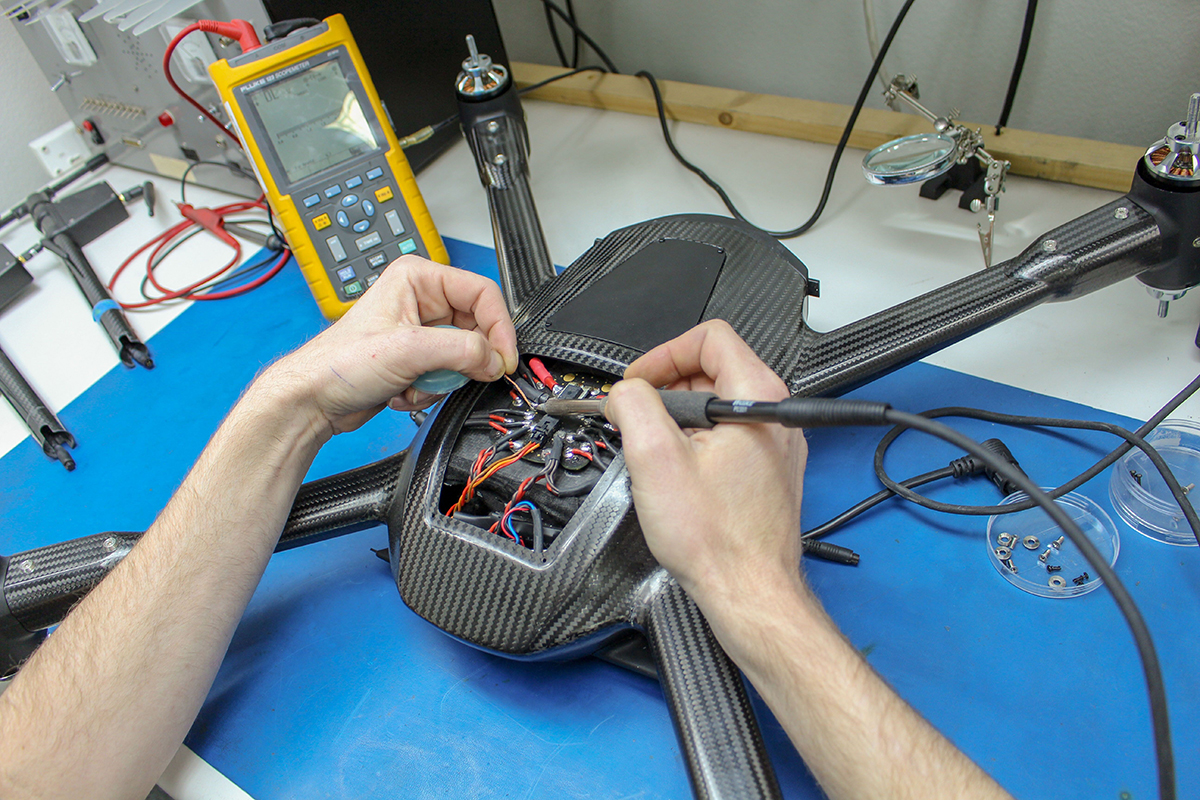News about Boeing teaming up with Robotic Skies to guide the future of UAS maintenance was notable for several reasons. Not only does it allow Robotic Skies to help operators of commercial UAS from around the world keep their drones in the air, but it also hints at the future of the airspace, where manned and unmanned aircraft will operate simultaneously.
This future is one that Boeing has supported and worked to enable in various ways over the decades. For Boeing, autonomy is about more than just the latest unmanned product, but what should their investment in Robotic Skies tell us about how and when this future will arrive?To find out, we connected with Brian Schettler, managing director of Boeing HorizonX Ventures. He explained what this development signifies for the drone industry as a whole, what it means to be able to offer unified operations services and much more. Jeremiah Karpowicz: How has Boeing’s autonomy strategy impacted the company’s decision to support companies like Robotic Skies?Brian Schettler: Access to safe, reliable maintenance is key to unlocking the future of commercial autonomous operations and urban mobility. Boeing’s investment in Robotic Skies supports our vision of safe, on-demand mobility by connecting UAS operators worldwide with crucial access to FAA-certified maintenance and repair services. Just as avionics are routinely inspected today, we believe that autonomy, too, will need to be inspected routinely. We expect unmanned systems to meet the same high safety bar as manned aviation. Given Boeing’s history in aviation, what should this commitment tell the drone industry as a whole about where UAS technology is going? Boeing believes that Robotic Skies’ business model will demonstrate our continued commitment to investing in the infrastructure and services for safe unmanned systems. Safety doesn’t end at certification of the aircraft; as UAS operations become more complex we see many of the same rules that make aviation safe today as applicable for UAS as well. This investment complements Boeing Global Services’ strategy to grow the business aviation and general aviation market segment and demonstrates our continued commitment to creating the infrastructure and services for safe autonomous aerial vehicles. William Ampofo mentioned that the ultimate goal of this endeavor is to help customers operate more efficiently. Is the biggest challenge with doing so more about technology, process, or something else?The biggest challenge is scale; many aviation customers today will augment their existing flight operations with unmanned systems, yet many of the same challenges in fleet operations will still exist, from inventory management to maintenance scheduling. As the UAS market matures and the fleet mix of these customers becomes more complex, there will be an expectation for solutions that address the entirety of the fleet, not just unmanned systems. How important is it that Boeing and Robotic Skies will be able to provide unified operations services for both existing commercial UAS operators and for companies seeking to enter the UAS field for the first time?As more customers adopt unmanned systems into their existing aviation fleet it’s critical to provide solutions that make such adoption as seamless as possible. By complementing Robotic Skies’ brokered network of repair stations with Boeing’s breadth of aviation services, Robotic Skies can deliver the full spectrum of services needed for commercial operators seeking to adopt unmanned systems. Any developments that you’re looking forward to seeing unfold in the space this year? We are excited to see so much collaboration underway among industry and regulatory stakeholders in addressing outstanding issues currently limiting commercial UAS operations. As an example, the FAA is working diligently on proposed rulemaking for RemoteID which will help facilitate more advanced operations for UAS and lay the groundwork for future Unmanned Aircraft System Traffic Management.Subscribe
The information you submit will be stored and used to communicate with you about your interest in Commercial UAV News. To understand more about how we use and store information, please refer to our privacy policy.
June 26, 2019
What Does Boeing’s Commitment to UAS Services Mean for the Future of the Airspace?















Comments